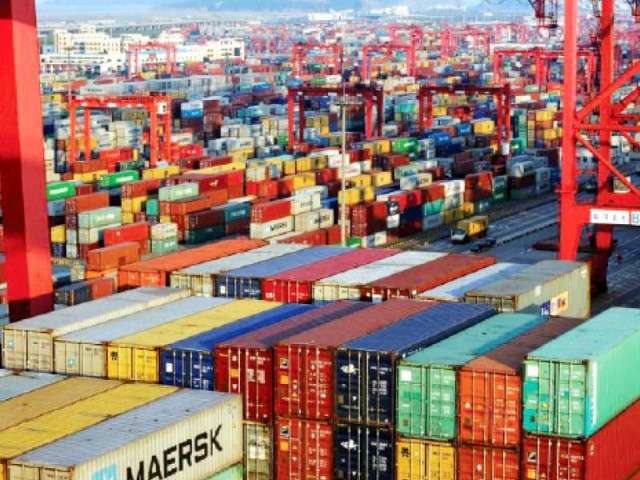Socialist babus, central planners
They promote ideas that contain dangerous consequences for economic future

In 1968, the intellectual-bureaucrat Dr Mahbubul Haq gave the notion of 22 families (PIDE now counts 31 families), which in his view controlled Pakistan’s financial and industrial resources and caused massive economic inequality.
The socialist Pakistan Peoples Party, under Zulfikar Ali Bhutto, capitalised on this and brought havoc through complete nationalisation of the economy, industry and education. By appointing civil servants as factory managers, they also destroyed the ethos of civil service.
While Bhutto is no more, and his party embraced privatisation (Benazir Bhutto as prime minister privatised more state-owned entities than Nawaz Sharif), the socialist and central planning mindset in the bureaucrats refuses to go.
In our recent meetings and interactions with the bureaucrats and planners in Islamabad, we have witnessed many alarming trends.
While the ideas they are promoting are couched in the language of welfare and national interest, it is important to unpack them and show the dangerous consequences they contain for the economic future. In this article, I will refer to some of these positions which continue to dominate policies.
No more privatisation
State can and should bring favourable policies for innovation and industrial development, however, it should not be running any business. In the last article, we showed how default of one state-owned enterprise, PSO, can bring entire economy to its knees.
Privatisation may not have led to the most efficient outcomes in all cases, but it has encouraged significant private investment and created far more jobs – take banking and telecom sectors.
Anyone who says today that Pakistani state should stay in business of running commercial enterprises by restructuring and improving corporate governance is sadly mistaken.
The bureaucrats, who will lose access to board’s positions, continue to talk about political consequences of privatisation and create hurdles in one way or the other. The judges who are intervening in such cases are also responsible.
The most important reason for privatisation is to ensure government’s exit from business, both for fiscal and efficiency factors.
Select favourite industries
We have met senior planners and policy managers who still echo the outdated industrial policy by selection of industries and by aligning fiscal and monetary incentives with their chosen industries.
Only the sector has changed. Yesterday, it was auto and textile, today it is mobile phone assembly. Unlike decades of support provided by the state, which has nurtured inefficient industries, it took only one shock – import restrictions – to cause the newly established firms for mobile phone assembly to shut down.
However, this may have provided the bureaucrats another opportunity to extend protectionism.
Nationalise IPPs
This one is alarming. In a recent public speech, a senior bureaucrat gave the suggestion of effectively nationalising the independent power producers (IPPs) as a solution to energy crisis by “buying them” through PSDP funding.
It comes as if the government is not already bearing a surmounting circular debt. While bureaucrats should never have the freedom to design a policy – they are implementers – given Pakistan’s power dynamics, such thinking means that policies can be driven accordingly.
If Pakistan would have more fiscal space, and if we have someone like the bureaucrat in the driving seat, the nationalisation of IPPs may actually happen. Imagine the international legal battles which will follow. I am sure that Khurram Dastgir Khan will not back such ideas, but it will be him who will be ultimately responsible.
More planning
The Planning Commission itself is an institution from an era of central planning. India abolished its Planning Commission about 10 years ago and devolved development spending.
Our Planning Commission continues to be heavily invested in centralised development spending with around Rs7 trillion of projects under its belt. There are massive inefficiencies in the whole project cycle, which escalate costs of projects and continue to be a drag on taxpayers’ money. Serious research is needed to look into return on PSDP investment.
Also, Planning Commission does not seem to play an active role in economic forecasting and scenarios development, which its economists should be doing. Instead of addressing these systematic issues, planning ministry continues to pursue new loans for new and old projects, which are now entirely funded through debt. It is where we need to carefully assess returns on these development loans.
This list is not exhaustive. It shows that while complete socialism and nationalisation is not feasible, there are very strong advocates for central planning and static economic management in our midst. While it is easy to recognise socialists with their branding, it is far murkier to identify central planners as their language is usually framed differently.
As above four examples show, many ideas for central planning are flowing around us. We need to remain vigilant and push for freedom of devolved structures as well as private firms and families against a powerful state.
The writer is the founder and executive director of PRIME, an independent economic think tank based in Islamabad
Published in The Express Tribune, April 17th, 2023.
Like Business on Facebook, follow @TribuneBiz on Twitter to stay informed and join in the conversation.



















COMMENTS
Comments are moderated and generally will be posted if they are on-topic and not abusive.
For more information, please see our Comments FAQ